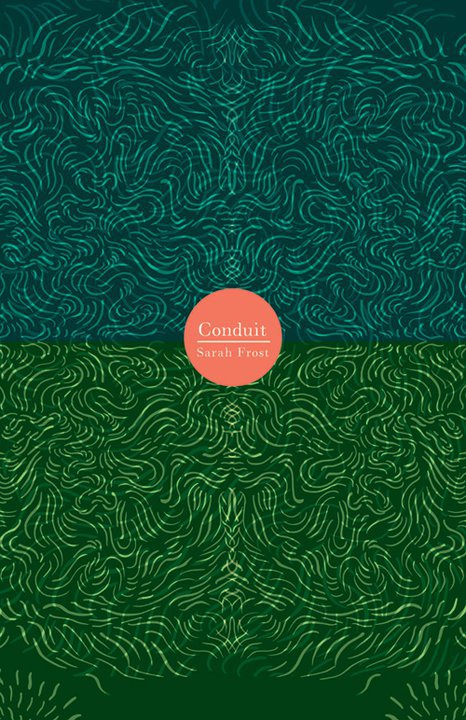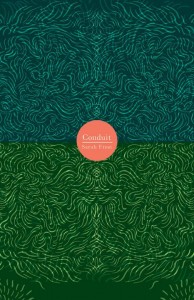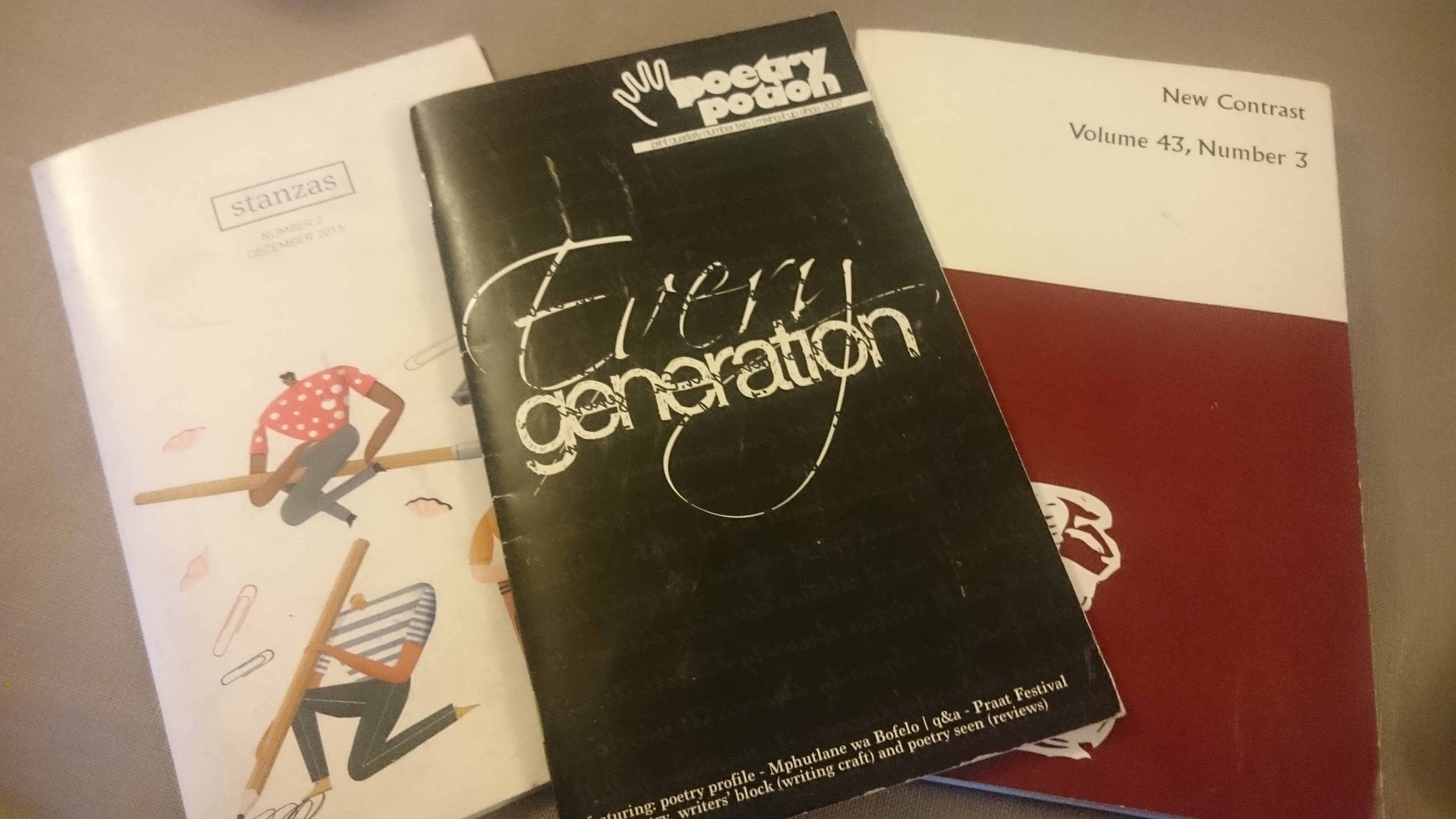Conduit by Sarah Frost
-Reviewed by Claire Trévien–
Some poetry collections feel like a series of poems arbitrarily assembled, others leave a sillage in your day. From the striking cover to the waving table of contents, opening Sarah Frost’s Conduit feels akin to being rapidly tipped down into a universe. Each poem is a cog in a greater whole, an episodic scene flashing before your eyes, until you turn the next page, an impression reinforced by the collection’s typesetting.
Yet there is very much a journey taking place, from abstraction to concreteness, beginning with the dreamlike ‘Seahorse’:
Once,
I curled like a seahorse
on a whispering floor;
clear careful script
filing a careful book –Time, a numb wave
surged over me. Twenty-two
times I nearly drowned;
found myself
floating.
The collection ends on ‘Doppelganger’, whose final stanza reads:
Now, from far, I trace your faint presence
as a cardiac monitor might mimic a waning pulse
needle ready to mark a small final
end point on the spooling graph paper.
Pairing the two up in this way makes the trajectory more striking, from a passive experience of repeated near-drowning, to an almost predatory situation. As a summary, I rather like Kobus Moolman’s blurb for the collection, which states that Conduit is a collection ‘[o]f searching for a foothold in a world where all slides and changes’. The title poem brings this concept to the fore, which opens on a stagnant tunnel and ends on a woman, who stands ‘indeterminate / at the edge of the water, / waiting for the clear words to come.’
The greenness of the cover tinges the poems within, imbuing even those that seem surer-footed, such as ‘Doppelganger’ with a layer of loss, of opaqueness. Take ‘In her shoes’, a poem clearly anchored in a contemporary situation, a mother selling her house to her daughter for half-price, which ends:
Time, a child, tugged at my hand,
pulling me back, as still we moved forward,
across the road to the lawyer’s office.
Reducing Conduit to a collection searching for the right direction isn’t really doing it justice though. Frost has a gift for creating deliciously tactile urban imagery, such as:
The Southern Cross, like a spoon
dips into the city bowl
scoops up the harbour lights(‘You stroked my face’)
Various places earn their own poems too, situating the collection specifically in South Africa rather than an untethered location. There’s a touch of the macabre in Frost’s description of Grahamstown, in the poem of the same name, where the town is ‘a pulse just visible in the soft hollows of a skull’. The Kwazulu-Natal region, in which Frost lives, is also present through the poem ‘Bellwood’ for example, in which the area’s flora and fauna are listed, with the unexpectedly sexual interjection of:
Earlier, in the open road, her car flanked a train
as it probed the landscape, like a man entering a woman.
A stanza that allows her to conjure the face of a man that refuses to quite fade from her consciousness (‘swimming up in her mind like insistent fish’).
Frequently, a poem is split across two pages, one positioned higher than the other, creating a slightly disconcerting break, a false end. It’s a design that works particularly well in ‘Imago’, a poem requiring a content warning. The first half feels almost detached in its description of a hotel’s international guests, slipping in quietly the story of a ‘radio journalist from Jozi’ and her rape. The second half is full of longing, and desire, but it is also ‘the wound of my history, one I cannot staunch’, in which a chaste goodbye kiss is like a ‘razor blade’. The two combined are a deliberately confusing blend of want and trauma. This subject is explored further later in ‘Every Day’, relating the gang rape of a fourteen year old girl reported in the news, with a ‘text a scar of muted grey’ and a ‘headline bleak as the Katlehong veld’.
Frost’s Conduit is essentially a highly sensual collection, where bodies explore and reject one another, where characters ghost each other’s bodies, or wander looking for a direction to theirs in… Although the collection is unified in its mood, individual poems, imbued with politics and sexual violence pull you up to the surface in unexpected ways. A powerful début collection.






